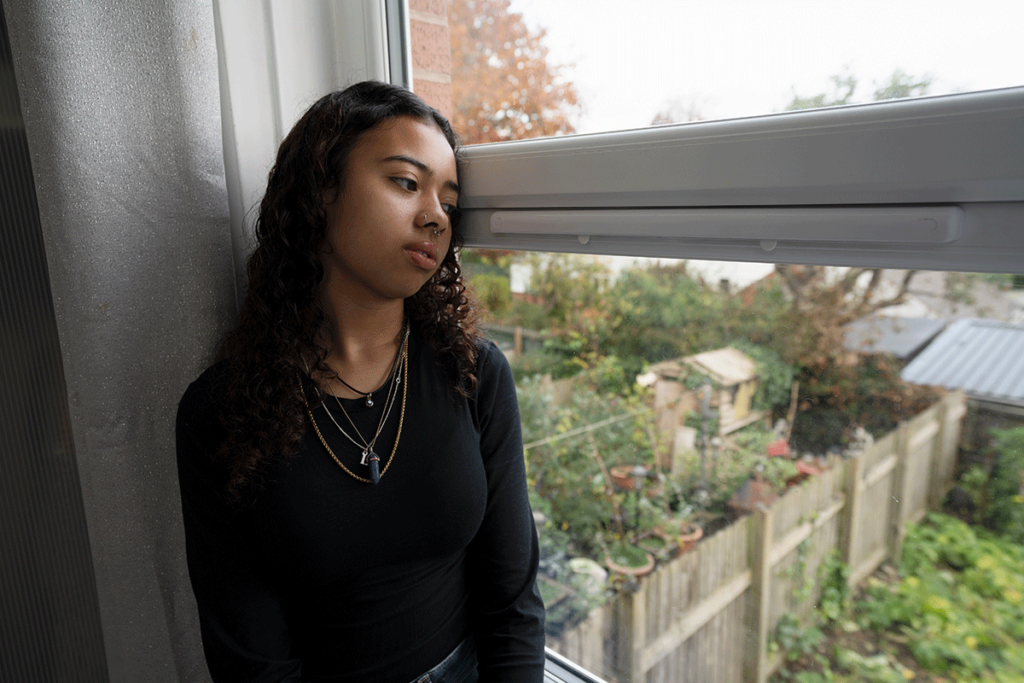Puberty is the natural transition from childhood to adulthood. Along with physical changes, teenage girls experience significant shifts in their mental, emotional, and social well-being. These changes, combined with the pressures of adolescence, can make this period particularly difficult.
There is a lot of important brain development going on in this season of an adolescent’s life. It is not hard to understand why this can be a very difficult time for kids—a heightened sensitivity to stressors and pressures, and a work-in-progress maturation process, learning to understand and adapt to the changes they’re going through.
For some teens, these challenges may lead to mental health conditions, including depression. Teen depression treatment at Honey Lake Clinic is designed to help adolescent girls who are struggling with their mental health. Call 888.428.0562 today to learn how our program can support a teen in your life.
Can Puberty Cause Depression?
While puberty is a natural stage of growth, it’s also a time of increased risk for mental health issues. Puberty and depression are closely linked, as hormonal changes can have a significant impact on a teen’s mood and overall mental health. Depression, anxiety, and other mental health concerns often emerge during this time due to the complex combination of biological, emotional, and social factors at play.
Depression and Puberty: Signs to Watch For
Many signs of depression, such as moodiness, irritability, or shifts in sleep patterns, may be mistaken for typical adolescent behavior. So, how can you tell if what your daughter is going through is more than just a phase?
Common signs of depression in teenage girls include:
- Academic decline
- Skipping school or avoiding responsibilities
- Emotional swings or frequent irritability
- Loss of interest in previously enjoyed activities
- Withdrawing from friends and family
- Difficulty focusing or concentrating
- Low energy and motivation
- Changes in appetite or weight
- Self-harm or thoughts of suicide
If you notice any of these signs in your daughter, it’s important to take them seriously. Depression during puberty is a serious mental health issue that requires professional intervention.
How Does Puberty Impact Mental Health?
Puberty and mental health are closely intertwined. For teenage girls, the hormonal fluctuations during puberty—especially the increase in estrogen—can contribute to mood disorders like depression. In addition to biological factors, common stressors such as body image concerns, peer pressure, and academic expectations can intensify feelings of inadequacy or sadness. Teens who already have underlying mental health conditions may find that puberty worsens their symptoms.
The timing of puberty can also play a role in a teen’s mental health. Both early and late bloomers are more susceptible to depression compared to peers who go through puberty at the average age. This could be due to feelings of isolation or embarrassment from being “different” during such a socially sensitive period.
Why Teenage Girls Are More Prone to Depression
Depression is statistically more common in adolescent girls than boys. Estrogen, which increases significantly during puberty, has been linked to a higher risk of mood disorders. Hormonal changes, combined with social and emotional stressors, make girls more vulnerable to depression during this stage of life.
At Honey Lake Clinic, we specialize in treating depression in teenage girls, offering a comprehensive, faith-based approach that addresses the unique challenges young women face during adolescence.
How to Support Your Daughter During Puberty
If your daughter is struggling with depression or emotional challenges related to puberty, here are some steps you can take to help:
- Keep communication open – Encourage your daughter to talk about how she’s feeling and reassure her that it’s okay to express her emotions.
- Recognize the signs – Pay attention to changes in mood, behavior, or academic performance. If her symptoms are persistent or worsening, seek professional support.
- Involve professionals – Reach out to a healthcare provider, school counselor, or mental health professional to evaluate her condition and explore treatment options.
Can Puberty and Depression Be Treated?
Yes, puberty and depression are treatable. The early identification, diagnosis, and treatment of depression are essential for helping your daughter recover and thrive. Transcranial magnetic stimulation (TMS) therapy is an effective treatment for depression, and it’s approved for teens 15 and older. At Honey Lake Clinic, we also offer non-traditional therapies like an equine program and art therapy, which have been especially beneficial for teenage girls.
Our adolescent program provides a supportive environment where teenage girls can address the root causes of their depression while building coping skills to navigate the challenges of puberty. Our holistic approach ensures that both the mind and body are cared for, promoting lasting recovery and well-being.
Seek Help at Honey Lake Clinic
If your daughter is struggling with depression during puberty, don’t wait to seek help. At Honey Lake Clinic, our compassionate team is here to provide the support and treatment she needs. Contact us at 888.428.0562 or reach out online today to learn more about our specialized adolescent programs and how we can help your family navigate this challenging time.
